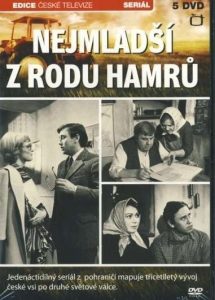With deep-felt thanks to the respondents.
There is a wonderful video on YouTube that shows David Morley being interviewed about his time at the Centre for Contemporary Cultural Studies (CCCS) and his and Charlotte Brunsdon’s work on Nationwide. The video looks like it might be from the late 1980s, early 1990s, and Morley is in quite a reflective mood/mode, explaining how he came to the CCCS and how he came to do the work he did.
What is fascinating about the video, and relevant to this blog, is that he highlights what roles the academic environment as well as the wider political context played in the development of the Nationwide project: his interest in the popular programme derived from a context of political upheaval through strikes, political activism and so on and an academic culture in sociology at the London School of Economics where the representation of politics in newspapers was widely studied, but the role of television largely overlooked. His contact with the CCCS caused the gradual shift of the project from traditional news programmes to the most popular programme on television that engaged with the news, namely Nationwide (BBC, 1969-1983). Thus, one of the first studies to take popular television seriously was clearly born within a particular cultural and political context in which politics itself, as it was represented in the media, was a topic around which the academy came together.
As you remember, if you’ve read my blog from a few weeks ago, I am interested in the cultures that shape our television studies. Our subject continues to struggle with cultural legitimacy, but it is also clear that it is more culturally legitimate to study some programmes over others. I wanted to find out if this differed from country to country and if there was a connection between the cultural legitimacy of television and the establishment of television studies as a subject field. My assumptions were originally that there would be quite significant differences between countries, and although my findings have indicated that this is indeed true, there are also thematic similarities which I am hoping to highlight in these next few blogs.
I contacted a few colleagues from across Europe to gain a sense of what they thought had shaped television studies in their country. I asked three simple questions: How do people in your country (both from universities and from outside them) react when you say that you research/ teach television? Why do you think television studies has/has not become a serious subject in your country? Why do you think television in your country is now/is not being taken seriously? I received responses from Denmark, Germany, the Czech Republic, Slovakia, Hungary, Italy, Portugal and that honorary European country called Canada. The responses varied in length and depth, and indicated rather complex (and sometimes paradoxical) cultures in which television studies operate.
The key shared theme in the responses was the role of politics. In many countries, television is studied because it is connected in some form or another to the political culture of the country. This can be quite apparent as in the example of Italy where the media mogul Silvio Berlusconi also became a dominant politician, serving four times as prime minister (for an overview of some of the issues regarding Berlusconi’s time in power, see Ginsborg 2005). And sometimes it can be less apparent, but still visible in the fact that television becomes a legitimate object to study in the context of journalism. In this blog, I want to lay out how this operates in the countries from which academics responded, starting with the ‘concern’ about television’s role in regard to politics.
Television has been taken seriously in several countries for many years because it remains perceived as a potentially bad object which can be, as Manuel José Damásio, Head of Film and Media Arts Department at the Universidade Lusófona in Lisbon, Portugal, put it, ‘instrumentalised’ by politicians. Damasio pointed in particular to the dictatorship when politicians used television for political purposes, and he pointed to studies that investigated the role of public service broadcasting under the dictatorship (see Traquina 1995, Carvalheiro and Silveirinha 2015, Jiménez 2013 on the role of TV in the transition to democracy). In Portugal, the public perception of television as influencer of political opinion makes the study of it legitimate, as much as the fact that television is also able to reflect certain repressive systems. Milly Buonanno, in her response to my email, highlighted that similar things are noticeable in Italy, though there, this concern often led to a sense of snobbery towards popular Italian television. She described a watershed moment in the 1990s when degree programmes in ‘Sciences of Communication’ became available for the first time which made the study of television possible and legitimate. However, at the same time, she also found a continuation of the disregard for television by some groups in the academy. She recalled:
Having spent ten years of my academic career teaching television in a Faculty of Political Sciences (the place matters [emphasis in the original]), I have fully experienced the underestimation and disregard of television (the medium, the studies, the scholars) on the part of the scholarly community that boasted belonging to more prestigious and historically consolidated disciplinary fields. Surprisingly enough (or maybe not) students were not immune from this syndrome, which not so rarely took political facets; especially during the 1990s. At the time the media tycoon Silvio Berlusconi became a political leader, and I often engaged in long discussions with groups of students, trying to counter-argue their claims that courses on television eventually served the interests of Berlusconi.
While in Portugal, this concern with television’s influence on the public (but also the recognition of its potential to facilitate change) has led to a situation where television emerged as an important subject for academics and students to study, in Italy the opposite was true, at least in some circles. Here some people apparently believed that television was so powerful that it couldn’t even be critiqued and taken apart by scholars: they too might run the risk of being duped. Between Portugal and Italy, then, we see very traditional understandings of television as causing direct effects (which are understood to be largely negative; for a nice overview and one model, see Ball-Rokeach and DeFleur 1976). While in Portugal the answer of the established elite seems to be to empower society through media literacy (Aufderheide 1993), in Italy the response by a similar elite was, at least at one historical point, one of complete rejection of the medium.
A final example that falls into this line of argument, though taking perhaps a more neutral stance, is Slovakia which, similar to Portugal, has produced a number of studies on television during the communist regime (see amongst many others Mihelj 2012). As David Levente Palatinus highlighted, however, ‘in many cases what happens really is the realisation of a socio-historical study of the past that has more to do with academia processing and finding ways to negotiate and come to terms with the past rather than actually looking at television as “television”. In most of those studies “television” is instrumentalised, used as a “trope” to facilitate the (re-)creation of social, cultural, political and economic narratives re-assessing the past.’ Here, then, television is seen as part of a larger system of culture and politics which needs to be evaluated in order to make sense of the past. What is interesting about these three examples is that their responses to television in relation to politics seem understandable in the light of their political cultures (and I appreciate that this is generalising quite a bit): Portugal has embraced the media literacy path as a result of having come through a period of dictatorship which is now a while ago and hence can be looked at from a level of distance, critically and constructively. Slovakia similarly has come through such a period of political oppression but is not yet quite ready to approach television as a medium with critical distance, but rather needs to work through the trauma of the period itself. Finally, Italy, a supposed democracy with a past of dictatorship that is now nearly beyond the reaches of living memory, observes that in a democratic system, the media are powerful enough to allow for someone as politically and personally problematic as Silvio Berlusconi to rise to the ultimate political power (and I am sure similar soul-searching is going on in the USA at the moment).
In these three countries (and elsewhere), television appears as powerful in all narratives regarding politics. And it is, then, perhaps little surprising that its study is often influenced heavily by sociology, communication studies and journalism: subjects interested in power-relations but also subjects that recognise audiences as (potentially) active. In this respect, Germany offers an interesting insight into what kind of television can be studied: within one of their two subject associations (the Deutsche Gesellschaft für Publizistik und Kommunikationswissenschaft – German Society for Journalism and Communication Studies), television can be studied from the point of view of ‘journalism, news, the public sphere, classical communication theories and media effects’ (anonymous communication). Considering that in Germany the trauma of the Nazi period still dominates a lot of political and cultural action, including Germany’s investment in the EU (Marcussen et al 1999), it is perhaps hardly surprising that the country’s attitude to television is similar to the one in Italy, with a pinch of Portugal – studying television in relation to politics and in relation to its potential negative effects on people’s political will remains important in order to stave off another fascist regime.
On the other side of this political coin is the social interest in television as a reflection of society, culture and political context. This was observed by several respondents. The most straight-forward answer came from Anne Marit Waade who is Associate Professor at Aarhus University. She wrote: ‘It is easy for both academics and people outside of academia to see the relevance and importance of both researching and teaching television. My own research focuses on television drama, and TV drama has become a significant mirror and storyteller in contemporary culture, something that many people relate to’. Television here is not just reflecting culture and society back to itself, but is – as storyteller – part of the myth making in that society. Importantly, culture here seems to be understood as very democratic and levelled; everyone has access to television, and could potentially participate in this myth making. From the point of view of a British academic who watches these dramas in a different context, this emphasis on equality might appear part of the social utopia of Scandinavia’s welfare state, even if this might be under threat (Bergman 2011). But even in other countries, the role of television as myth maker is widely appreciated. In Hungary, Zoltán Dragon suggested, television has become the main entertainment medium for young adults who come to study with him. And it is television series that have particularly peaked their interest. In the Czech Republic, domestic serial television drama is both lauded and derided, as Irena Reifova made clear:
Television is taken very seriously as it used to be a major and unparalleled source of distraction, helping (almost literally) the whole nation to work through the grim and stereotyped everyday life during the totalitarian era, namely in the 1970s and 1980s. Domestic television drama, especially serial television drama, used to be a sort of cult television of the day […] Television drama was not explicitly viewed as low-brow popular culture; it was more played up by taking it as a form of semi-artistic genre and national culture.
As a distraction from the everyday under the totalitarian regime, television serial drama must surely appear as suspect, and indeed, Reifova went on to describe that the new generation of these dramas ‘are condemned as mass culture for cultural dupes’. Yet, at the same time they were also seen as something akin to art. This suggests a paradoxical relationship of the elite in the Czech Republic to these dramas – one which celebrates the form to an extent (perhaps as an example of national culture where film and television aren’t that separate as far as production cultures are concerned; Szczepanik, forthcoming); but displays the same concern about its effects on the populus as elites in Italy and Portugal. Indeed, Reifova also narrated the story of the Czech version of the REF (the British Research Evaluation Framework) where the chair of the panel looking at media and communications publications ‘automatically excluded all publications on television from the database arguing that it deals with television so it must be popularising work’, thus suggesting a traditional hierarchy of art as only consisting of elite cultural forms.
What is fascinating about these approaches – including the more negative one that Reifova described – is that they are more heavily influenced by cultural studies and philology. Reifova emphasised that in the Czech Republic four universities now put significant focus on studying television as a ‘social, cultural and aesthetic force’. In Denmark, Waade said, television studies originated first in Danish language, culture and media and film studies courses. And in Hungary, television is currently often studied in the context of philology, again, because the medium is understood to contribute to the narratives of a culture, be that Hungarian or as in Dragon’s case American culture. Such an approach thinks of television much more as generating narratives and myths, as indicated above, which are interpreted and re-imagined by people watching them, leading to new narratives and myths. Television, then, does not simply appear to relay power, as in the more negative understandings of television’s role in political life as evident in Portugal, Italy, Slovakia and Germany, but operates within the cyclical relations that create a living culture.
Only one of the respondents however addressed the role of politics and policies in facilitating the research in that area, and again this came from Denmark. Waade listed amongst other reasons for why television was taken seriously in Denmark that ‘television research is supported by established funding bodies’, highlighting the supportive role that the political context can have on the emergence and stabilisation of a field. But she also emphasised that ‘television is part of the cultural political and public service commitments within the country’, indicating yet again how the welfare state with its focus on public service also as far as broadcasting is concerned can help to legitimise television and its studies. This obviously suggests that a more socialist political environment is more supportive of television and its studies, but it also indicates that the discourses of public service as quality and commercial as low-brow which have plagued broadcasting from its inception (Hilmes 2003) remain central in how we make sense of and evaluate television.
Elke Weissmann is Reader in Film and Television at Edge Hill University. She is currently considering changing this to Reader in Television and Film, however. Her books include Transnational Television Drama (Palgrave) and the edited collection Renewing Feminisms (I.B.Tauris) with Helen Thornham. She sits on the board of editors for Critical Studies in Television. She migrated to the UK in 2002 after realising that German television was as bad as she remembered.
References without Hyperlink:
Szczepanik, Petr (forthcoming): ‘Post-socialist Producer: The Production Culture of a Small-Nation Media Industry’, in Critical Studies in Television, Vol. 13.2.






